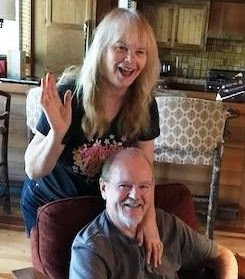The nicest clients I work with are from the group we call “people pleasers”. They often seek counseling readily, and are very faithful at attending and doing the “homework” that is assigned (after all, they also want to please me, the counselor).
But lasting change for people pleasers is often more difficult. There are many voices in their lives calling out to them to satisfy relational demands – and it becomes hard deciding which voice to heed, especially when there are competing requests.
People pleasers are “feelers” and making balanced decisions becomes a challenge. “Do I lean in the direction of my head or my heart”? Feelers usually lean towards the heart. “Do I honor myself or honor others?” People pleasers usually sacrifice themselves first.
Unfortunately people pleasers make good victims. They often believe the best in others, and as a result others may take advantage of their good nature and willingness to serve. In the extreme they can end up abused employees, wives, husbands and volunteers.
How would you rate yourself as a people pleaser? Ask these questions.
- “Can I say ‘no’ when I need to?”
- “Do I feel guilty holding boundaries even when I know I am right?”
- “Am I afraid that people won’t like me if I don’t agree with them?”
- “Do I do things for other people that I know they can and need to do for themselves?”
- “Do I think of myself as a ‘rescuer’ and like to take on people as projects?”
There are many more similar questions you could ask yourself, but you get the gist.
We, as believers, are called to serve one another, but people pleasers often find themselves the only one serving (one-way relationships) or resistant to allowing other people to serve them.
If you are a people pleaser, you will have to learn to go against your feelings and endure the anxiety that will surely follow. It can be a slow process and you may need help. But the result is that you will not ‘burn out’ early and will develop true friendships that are based on mutual care. Those are the relationships that are both deeply satisfying and lasting.




